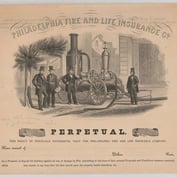What You Need to Know
- Abacus Life hopes to go public by the end of the year.
- The company could get more money it could use to buy life insurance policies from the insureds.
- In theory, the deal could lead to more demand for the policies held by your clients.
Abacus Life hopes to put its stock in the hands of public investors, and that move could lead to richer opportunities for advisor clients who want to sell unwanted life insurance policies.
The Orlando, Florida-based company and its Longevity Market Assets affiliate announced Tuesday that they plan to go public by merging with East Resources Acquisition Co. by the end of the year.
East Resources is a “special purpose acquisition company,” or SPAC, that exists solely to provide the regulatory arrangements another company needs to get its stock listed on a stock exchange. The SPAC now has stock that trades on the Nasdaq, under the symbol “ERES.”
Abacus Life intends to call the combined company “Abacus Life” and change the stock symbol to “ABAL.” Like East Resources, the combined company would list its stock on the Nasdaq.
Life settlement companies buy life insurance policies from the original policyholders. The benefits then flow to the life settlement companies, or to investors that buy the policies from the life settlement companies, rather than to the original beneficiaries.
The companies argue that the arrangements can be a good deal for consumers who have life insurance policies they no longer need, or who need cash more than they need life insurance.
What It Means
Jay Jackson, CEO of Abacus Life, said Tuesday on a conference call aimed at investors and securities analysts that the company wants to attract more institutional capital and expand efforts to educate consumers about the value of their life insurance policies.
“Life insurance is one of the largest markets globally — a massive $13 trillion in the United States,” Jackson said. “That’s two times the U.S. residential real estate market.”
But most of the value vanishes, because the policyholders let 90% of the policies lapse, Jackson said.
Abacus Life can make the life insurance market more fair to the policyholders by paying policy sellers prices that average about eight times what insurers would pay those policyholders if they surrendered the policies and received cash surrender value payments from the life insurers, according to company estimates.
In theory, if Abacus Life and other life settlement market players had more cash, they could pay better prices for policies and buy a wider range of policies.
Life settlement marketers have suggested that for some consumers with the right kinds of life insurance policies, the life settlement market could be a good supplement to pension plans, individual annuities, ordinary retirement savings accounts and other sources of post-retirement cash.
The Companies
Abacus Life was founded in 2004.
The company and its affiliates have relationships with 78 financial services organizations and 30,000 individual financial professionals.
From 2019 through 2021, the company arranged the purchase of life insurance policies that are on track to pay $2.9 billion in death benefits. It made some of those transactions through relationships with KKR, the Teamsters union and other investment fund managers.
The company estimates that in the past 12 months, it has originated, owned or serviced life insurance policies that are on track to pay $950 million in benefits, and that it accounts for a 20% share of the U.S. life settlements market.
The SPAC, East Resources, is based in Boca Raton, Florida.








 August 30, 2022 at 04:56 PM
August 30, 2022 at 04:56 PM












 Copyright © 2024 ALM Global, LLC. All Rights Reserved.
Copyright © 2024 ALM Global, LLC. All Rights Reserved.